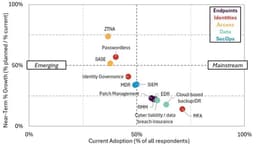Home / Business and Economy / Guard Your PIN: Your Bank's First Defense!
Guard Your PIN: Your Bank's First Defense!
24 Nov
Summary
- Never share your PIN or One-Time Passcodes.
- Scammers use pressure; legitimate brands won't.
- Emails and texts are top scam channels.

Protecting yourself from scams starts with understanding the common tactics fraudsters employ. Experts advise never sharing PINs or One-Time Passcodes, even with close relations, as this information can be intercepted. Legitimate businesses will never pressure you into making quick decisions or transferring money; scammers, however, rely on creating a sense of urgency.
Stay vigilant against phishing attempts by not clicking on unknown links or attachments and keeping your software updated. Scammers can spoof trustworthy phone numbers, so don't take anything at face value. If a situation feels off, trust your instincts and take time to Stop. Think. Check. This proactive approach is crucial, as many people are targeted weekly.
Research indicates that emails are the most frequent avenue for scams, followed by texts and phone calls. While many people are aware of potential fraud, a significant number fail to report it, often ignoring suspicious attempts. Maintaining strong personal security habits, like using unique passwords and not storing sensitive data insecurely, further strengthens your defenses.




